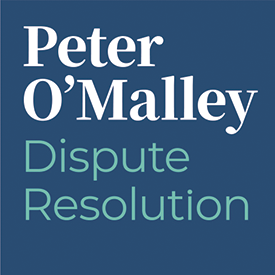The ‘Seventh annual Report of the Chairperson of the Construction Contracts Adjudication Panel, Mr Bernard Gogarty, to Mr. Neale Richmond T.D, Minister of State for Business, Employment and Retail’ has just been published. The first annual reports for the years of 2016/2017 and 2017/2018 were for the two years immediately after the enactment of the Construction Contracts Act 2013 on 25 July 2016. As could be expected there were no appointments made by the Construction Contracts Adjudication Service (CCAS) in 2016/2017 and only nine appointments were made in the following year 2017/2018.
The Construction Contracts Act 2013 (the Act) is only applicable to those construction contracts entered into after the enactment date of 25 July 2016. There was understandably a time lag, as demonstrated by the lack of appointments in the first two years, as the industry became aware of the Act and adjudication became more active. The last five years from 2018/2019 up to 2022/2023 represents the period when adjudication under the Act has become established as one of the primary processes for dispute resolution in the construction industry in Ireland.
The most recent five years of data, completed by the recent publication of the ‘Seventh Annual Report’ now provides a robust data set for the compilation of ‘Dispute appointment statistics from the construction bodies in Ireland – 2018 to 2023.’ This compilation based upon data from the leading construction bodies who make appointments, the Construction Industry Federation (CIF), the Chartered Institute of Arbitrators (Ciarb), the Society of Chartered Surveyors Ireland (SCSI), the Royal Institute of the Architects of Ireland (RIAI), Engineers Ireland (EI) and the Construction Contracts Adjudication Service (CCAS) is provided within the below PDF file.
The trends that can be identified from this data are summarised below:
Trends over the most recent five-year period:
- A total of just under 400 (397) dispute appointments, by the six industry bodies, have been made over the five-year period.
- In the short period since enactment of the Construction Contracts Act 2023 in July 2016, adjudication continues to increase share as the leading dispute resolution process through industry appointments.
- Adjudication now accounts for just under 65% of all appointments across the four primary processes of Mediation, Conciliation, Adjudication and Arbitration over the five-year period.
- Although adjudication appointments are slightly lower in 22/23, compared to the previous year of 21/22, the continuing trend is upwards.
- Industry appointments to the three dispute resolution processes of mediation, conciliation and arbitration are in a continuing downward trend.
- The number of appointments to mediation continues to show an overall decline, with a small increase in 22/23.
- Conciliation appointments have reduced significantly but now show a consistent, albeit small share, of all appointments.
- Arbitration appointments continue to show a declining trend.
- All the five industry nomination bodies, excluding the CCAS, are showing a downward trend in appointments.
- Over the five-year period circa 20% of appointments have been made by the RIAI, circa 10% by the CIF, with the remaining 5% shared between the Ciarb, the SCSI and EI.
Notes:
- There is extensive anecdotal industry evidence of the continued popularity of party agreed appointments, particularly for mediation and conciliation, as consensual processes, where data is unavailable due to confidentiality.
- Agreed conciliator appointments, with a named conciliator as provided for in the PWC suite of contracts, continue to be popular but are opaque in terms of statistics due to the necessity of confidentiality.
- There is general industry agreement that adjudication has now taken over from arbitration as the most common imposed process for dispute resolution.
Dispute nomination statistics – a five-year view

